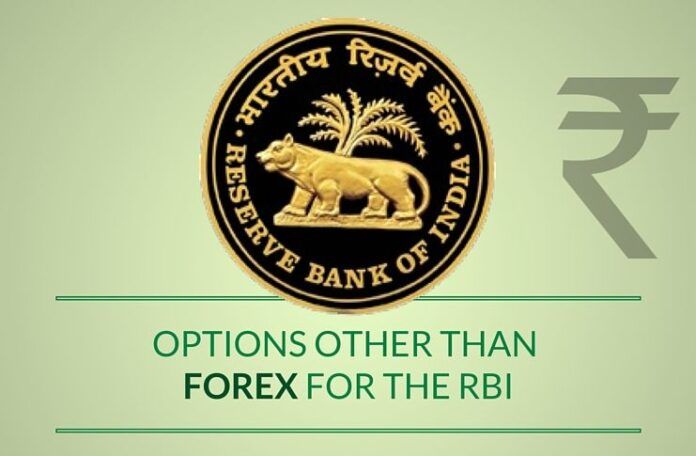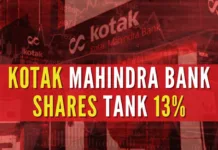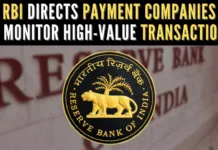
[dropcap color=”#008040″ boxed=”yes” boxed_radius=”8px” class=”” id=””]T[/dropcap]he following conversation took place over private emails between Sanjeev Sabhlok and Shubhendu Pathak on the article One Chart That Justifies Sacking Of The RBI Governor published on PGurus on June 07, 2016. Sanjeev Sabhlok was a member of the 1982 batch of the IAS. He completed his PhD in Economics from University Of Southern California in 1999, and is currently working as a Senior Manager at the Department of Treasury and Finance, Government of Australia. Shubhendu Pathak is the author of the article.
PGurus is publishing this email conversation with consent from both the authors.
Fiat currency always tends towards unlimited supply. They are all a bogus piece of paper.
Sanjeev Sabhlok’s First Email To Shubhendu
Shubhendu. So long as India’s reserves hold their value, there is no issue with having large reserves. Indeed, a freely floating and convertible INR (which is not the case today, sadly) would have risen in response, making imports cheaper and distributing the benefits of the reserves to our consumers.
The issue that since the 1971 default by the USA (going off the gold standard), currencies are no more equivalent to gold and don’t hold their value. US Treasuries are not God-mandated values but are contingent on the actions of the the US government – which has been driven by Keynesian and socialist ideas for many decades. US policy makers have gone bonkers. They are borrowing as if tomorrow will never come.
Accordingly, the US has no choice but to default on its debt. A Trump Presidency seems most likely to be the time when such default will occur. Such a default will send shock waves across the world, but this outcome can’t be reversed, now. The die is cast. US debt levels are just too high to service with a normal interest rate environment.
I’ve elaborated here: http://www.sabhlokcity.com/2016/06/raghuram-rajan-must-switch-from-us-treasuries-to-gold-or-bitcoin-asap-trump-will-give-the-world-a-haircut-the-us-has-no-option-but-to-default/
Now, Raghuram Rajan has been calling for a more normal interest rate environment, but as we know, Janet Yellen is NOT going to oblige him, given the risks of a meltdown of US government finances. Therefore, the US is fooling the world in plain sight. Those left holding the USD and US government debt will be left holding the spoon. This is a sort of Ponzi game.
If Rajan carries on holding USD and US securities, he could cause tens of billions of dollars of losses to India.
I consider he should immediately diversify – and away from currencies (since almost all fiat currencies are excessively debt-ridden). Gold appears to be the best safe haven. And maybe Bitcoin/ cryptocurrencies – anything of value whose supply is limited. Fiat currency always tends towards unlimited supply. They are all a bogus piece of paper.
Regards
Sanjeev
Shubhendu Pathak’s Reply To The Email
Sanjeev,
Thank you for your comments.
It is interesting that you quoted Peter Schiff in your article. I had a couple of email exchanges with him a few years ago on a related topic. I am copying him on the email.
[dropcap color=”#008040″ boxed=”yes” boxed_radius=”8px” class=”” id=””]T[/dropcap]he dollar losing value is not the only downside of collecting reserves. The question is, losing value in terms of what? Remember here that we are talking about relative, and not absolute, values; i.e. the dollar’s value against the rupee. The value of one note of dollar will always be higher in terms of rupees than what it would have been if there were no dollar-denominated reserves on the balance sheet of the RBI. We lost the absolute standard in 1971. Now it is all relative. By collecting fiat currency reserves, we only submit ourselves to the vagaries of the monetary policies of other countries. Moreover, accumulating fiat reserves distorts price discovery; I have illustrated this in detail in the article. It will be much better for our economy if the dollars, strong or weak, are in the hand of the people of India who earn them (or borrow them). They might use those dollars to buy capital equipment (remember boats manufactured in Atlanta) and make something in India.
I think you are misinformed about the actions of the RBI Governor. He has not been calling for a normal interest rate environment in the U.S. He did not urge Janet Yellen to increase the rates. On the contrary, in the Jackson Hole meeting on August 28 and 29 of last year, when he had the chance to express his opinion in the official capacity, he urged the Fed not to increase the rates and was widely applauded in the U.S. for this gesture. Note that he did this, citing volatility concerns, after we had had QE1, QE2 and QE3 and seven years of zero percent money. I referred to it in my article “You Can’t Just Invest On Hope” published on Seeking Alpha on September 11, 2015.
Even if he has changed his official stance since August of last year, it is naive, if not criminal, to expect the U.S. to follow a monetary policy that is favorable to India and then to base your own policy on that expectation. It is the definition of Fool’s Paradise. Just wait for QE4 or, as you pointed out, a default. I think QE4 is more likely.
By the way, Donald Trump came on television later that day and said that he did not mean that the U.S. will have to default. He dismissed it as a misinterpretation of his words and changed his position to “We don’t have to default. Because we can always print money”.
I am with you on the gold standard or any commodity based standard. Bitcoins don’t have any intrinsic value. They are good only as long as people accept them as money; not too different from a fiat currency.
On a similar note – If you give your permission, and Mr. Iyer (copied on the email) agrees, this email discussion can be published on PGurus as a follow-up to the article.
Regards,
Shubhendu Pathak
Sanjeev Sabhlok’s Agreement and Clarification
Thanks, Shubendu
I think we are both on the same page on the fundamental issues.
The few observations I make below are merely clarificatory, and do not change the basic arguments:
-
In January this year Raghuram Rajan seems to have reversed his mid-2015 position. He is probably conflicted between the general principles of economics and India’s immediate interests. While he may theoretically want a low interest environment to end, he probably doesn’t want the short-term adverse effects on India’s adjustment to higher US interest rates.
This is why I oppose central banking and believe we must shift incrementally to free banking. Swarna Bharat Party’s policy is clear on that. Why should the future of the world depend on the personal understandings of a few persons? A market – based on the demand and supply of billions of people – is best placed to determine all prices, including interest rates. All we need are incentives to keep banking frauds in check (e.g. http://www.sabhlokcity.com/2016/06/the-real-reason-why-banks-behave-badly/).
-
Yes, – assuming that RBI will continue under the socialist BJP government – India should dispose of its USD holdings. Gold is best. Re: Bitcoin, I understand Peter Schiff’s arguments and the point you make, but Bitcoin is now reasonably well-established, and its supply is limited. A bit of diversification into Bitcoin may well be prudent.
-
Trump’s comments: It is hard to keep up with what he says. However, unless the US ensures a zero interest environment to eternity (QE4, etc.), there are only two options for the US as creditor: inflate the USD or default. If Trump won’t default, he will inflate. I think he is going to be a circuit-breaker and doubt he will continue with QE. Low interest madness can’t go on forever. Further increasing debt can’t be good for the US.
By all means publish these comments anywhere you wish.
Regards
Shubhendu Pathak’s Comment on The First Point In Sanjeev’s Last Email
Sanjeev,
The January article (above) does not indicate the official position of Raghuram Rajan. It looks like he did something economists all over the world are known for doing whenever there is a turmoil; he became Captain Hindsight. This article was published following the January drop. I follow central bankers closely, and on various platforms, where Raghuram Rajan has spoken in his official capacity, repeat: official capacity, he has repeatedly confirmed his belief that the U.S. economy is on the path to a healthy recovery. You can’t have your cake and eat it too.
Regards,
Shubhendu Pathak
- Supreme Court rejects plea to tally all VVPAT slips with EVM votes; says ‘no going back to paper ballot’ - April 26, 2024
- US report citing human rights violations is deeply biased: India - April 25, 2024
- Kotak Mahindra Bank shares tank 13%. Market Cap erodes by Rs.37,721 cr post-RBI action - April 25, 2024










